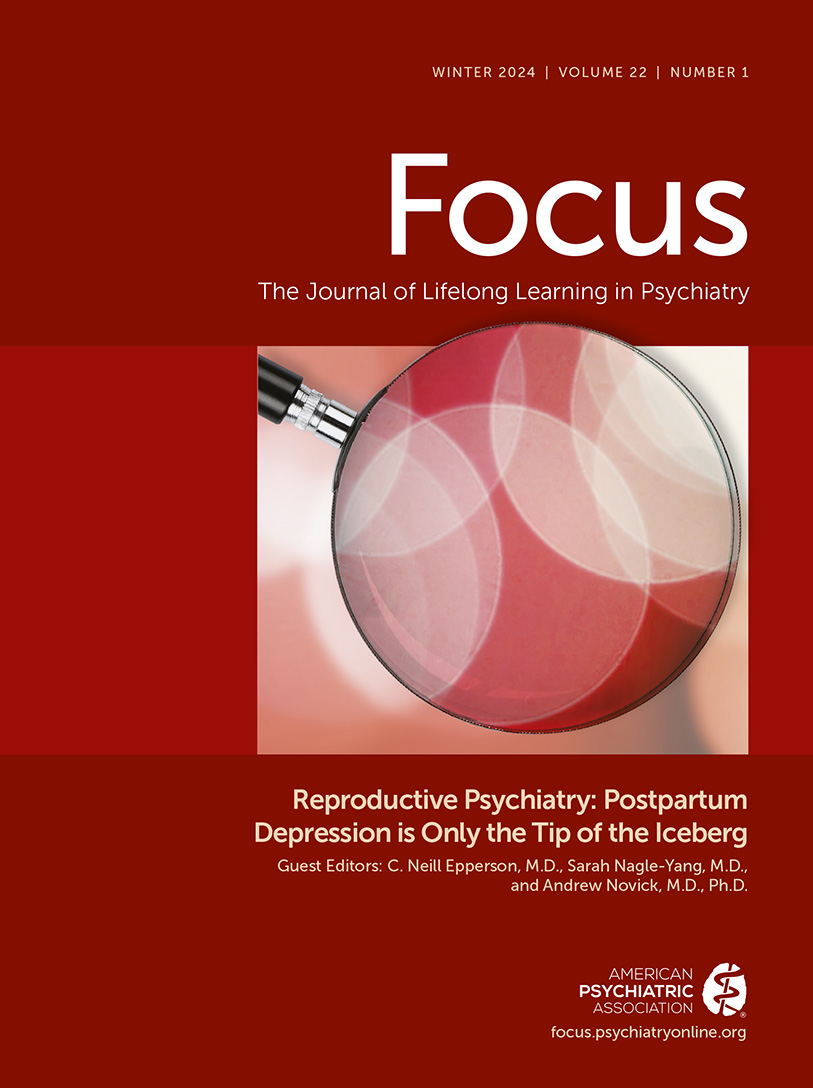An Overview for the General Psychiatrist Evaluating Patients With Obstetric and Neonatal Complications and Perinatal Loss
Abstract
When neonatal and obstetrical complications occur, the identification and management of mood and anxiety disorders become complex with an ever-expanding array of psychiatric needs that include the management of grief- and trauma-related disorders. With high rates of maternal morbidity and mortality in the United States and laws in many states restricting reproductive health access, psychiatrists must be proficient in managing psychiatric sequelae in this context. High-risk groups for peripartum mood and anxiety disorders, posttraumatic stress disorder, and complicated grief include those with neonatal intensive care unit (NICU) stays and those who have experienced infertility and recurrent pregnancy loss. Groups who have been historically marginalized by the medical system (e.g., Black, Indigenous, people of color) and those from LGBTQ+ communities are at similarly high risk, and more interventions are needed to support these groups. Strategies emphasizing trauma-informed care, psychotherapeutic approaches, and using patient-centered language are recommended.
Access content
To read the fulltext, please use one of the options below to sign in or purchase access.- Personal login
- Institutional Login
- Sign in via OpenAthens
- Register for access
-
Please login/register if you wish to pair your device and check access availability.
Not a subscriber?
PsychiatryOnline subscription options offer access to the DSM-5 library, books, journals, CME, and patient resources. This all-in-one virtual library provides psychiatrists and mental health professionals with key resources for diagnosis, treatment, research, and professional development.
Need more help? PsychiatryOnline Customer Service may be reached by emailing [email protected] or by calling 800-368-5777 (in the U.S.) or 703-907-7322 (outside the U.S.).



